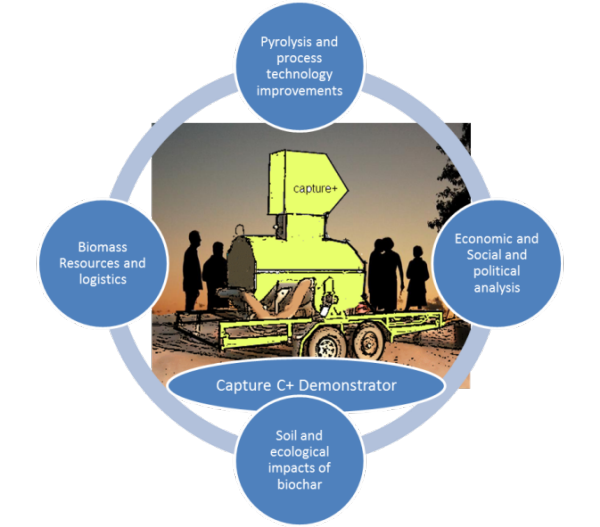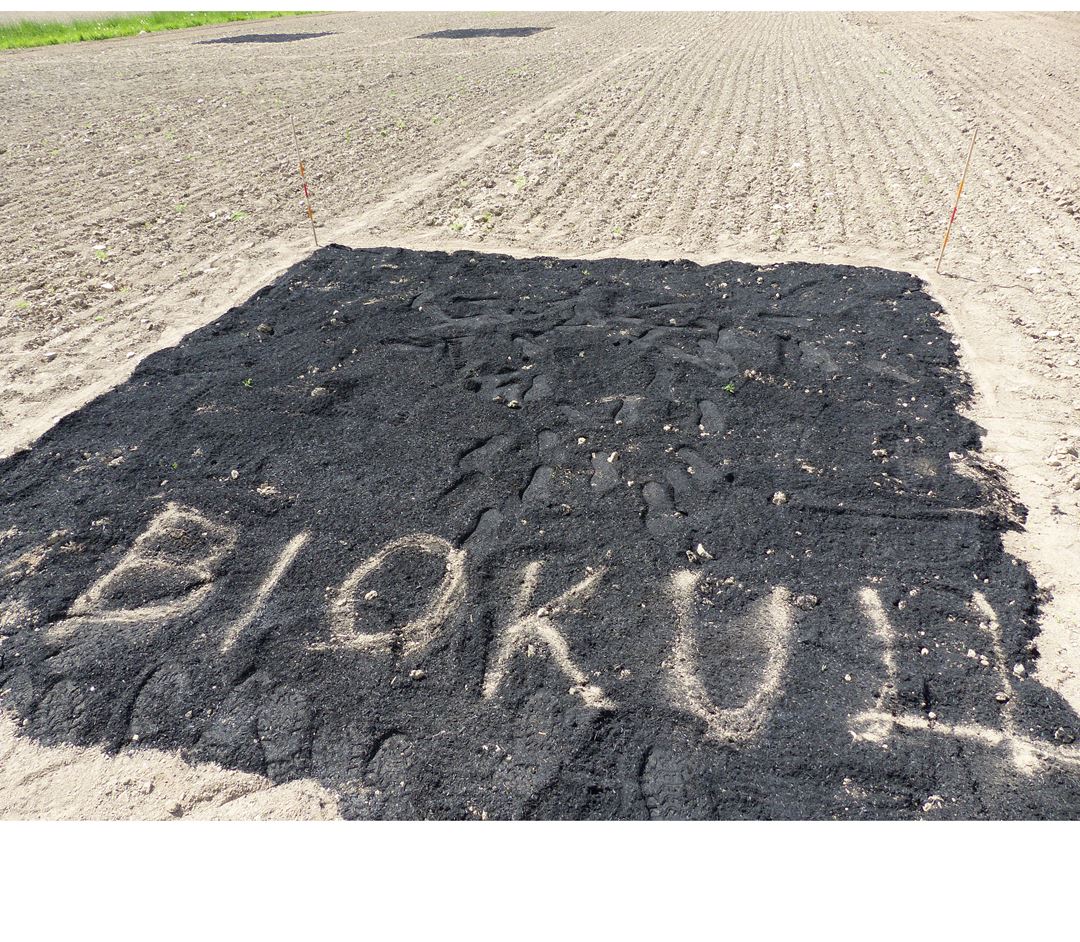Carbon sequestration via pyrolysis and deposition of biochar in soil has evolved over the last decade. Biochar is produced by heating organic material under oxygen-free conditions together with bio-oil and gas that can be used for energy purposes. A significant amount of research has recently contributed to an increased understanding of biochar effects on carbon sequestration, greenhouse gas emissions and agronomy. However, more research is needed on biochar effects on plant and grain yields, the influence of production technologies on biochar quality and its effect on soil fertility, pyrolysis bio-oil quality and cost reductions. Implementation will further require a combination of substantial innovation, private and public investment, systems of incentives and integration in existing agricultural practices and governance systems.
The main objective of CAPTURE+ is to develop biochar systems as a tool for achieving a zero emission society by applying an interdisciplinary approach for development, assessment and implementation in agriculture and forestry.
Secondary objectives
- Improve on the technical, economic, political and social factors that currently limit the implementation of biochar in Norwegian agriculture and forestry
- Increase the value of biochar/bio-oil through process improvements using biotechnology and nanotechnology
- Develop scenarios for how biochar can be sustainable in Norway (economically, environmentally and socially)
- Establish a platform demonstrating integrated biochar technology solutions for Norway
- Ensure the quality of biochar regarding C sequestration, improved soil quality and yield increase
- Engage stakeholders in the implementation paths for biochar in agriculture and forestry
- Increase awareness of the potential of biochar as a low cost C sequestration technology
The novelty lies in the integration of enabling nano- and biotechnologies to improve the process and ensure enhanced value of end products that may permit large scale adoption. The integration of economic, societal and political analysis, including stakeholder involvement in technology development and implementation is also novel.

The consortium combines expertise from chemistry, agronomy, agricultural science, social sciences, logistics and economics and represents Norway's most acknowledged research institutes within the various disciplines;
- Norwegian Institute for Agricultural and Environmental Research (Bioforsk)
- DNV GL
- SINTEF
- Centre for Rural Research (CRR)
- Norwegian University of Life Sciences (NMBU)
The project is funded by the Research Council of Norway.

